Nov 8, 2023
You Need To Bring Back Geography
Culture & PeopleSources
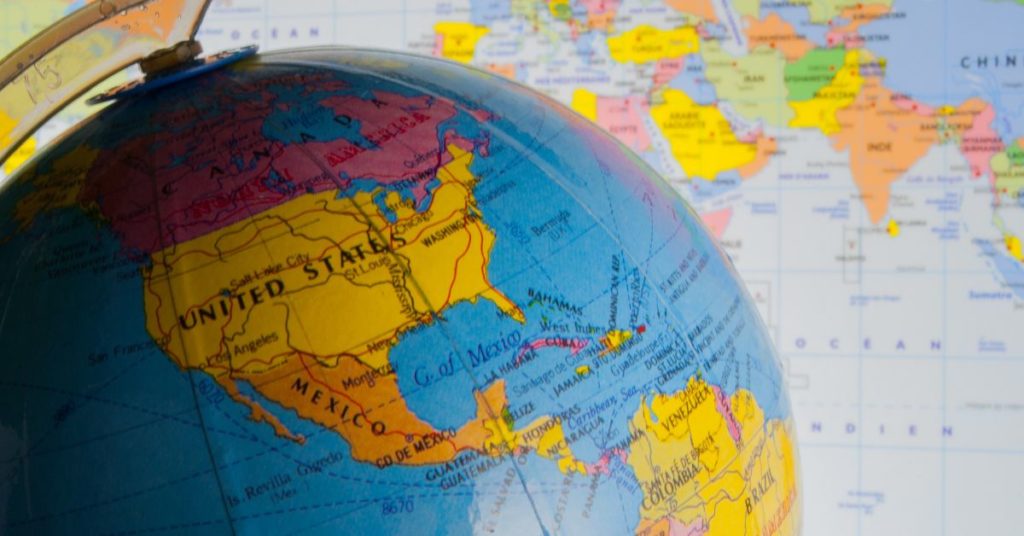
Geography related content is important for business, compliance and mission diligence. But most people have never had a course in geography because most schools don’t teach it anymore.
What to do? Read this post to understand why geography is important and how to improve geography diligence skills.
Flashback
This is an issue that I saw firsthand. At one point I consulted and worked for a compliance start up company that collected and aggregated certain types of data sourced from global public sources. That data was available for sale in products that were organized, in part, geographically.
To my surprise, I discovered that there were people that did not have a working knowledge of geography. Moreover, they did not seem to understand that there were online resources that would assist them in learning more about geography. These were professional people performing diligence related work. I am sure that for each person that asked a question, there were many more that did not.
Point of the story – don’t assume that a highly educated or trained analyst or other professional has a working knowledge of geography or that they are familiar with useful online resources. Instead, assume that you will need to make this information and these resources available to them so that their diligence is performed efficiently and the outcome is accurate.
Pop Quiz
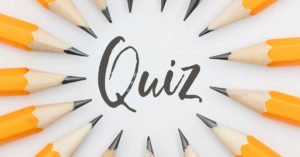
How is your geography knowledge? More importantly, how is your geography knowledge in relation to issues that impact business decisions, compliance requirements and ethics.
These are a few geography questions that relate to current events or issues that impact industries, financial markets and your choice of partners, customers and suppliers.
To see the answer just choose the plus sign
Doing Business in the World
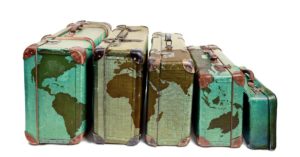
You can not avoid the world. Think about:
- what happens to financial markets in one country when a central bank in another country makes a major change to interest rates
- how supply chains were impacted by pandemic conditions and climate events,
- how overseas cost increases in energy, goods, labor and transportation impacts the price you have to charge for your own services and products,
- what happens to property sales and luxury good sales in one country when very wealthy groups of people are sanctioned or subject to currency restrictions in their own countries,
- restrictions on your choice of customers, suppliers, consultants and employees not to mention locations of business, in response to local and global restrictions and regulations to fight terrorism, money-laundering, crime and corruption.
It is clear that what happens in one place may have major impacts thousands of miles away.
So while we have grown more interconnected, while the internet has brought communication and content to us from most countries of the world, we are also growing increasingly ignorant of basic facts, history and the cultures that are associated with these places.
The Geography Knowledge Gap
Geography is the study of places and the relationships between people and their environments. Geographers explore both the physical properties of Earth’s surface and the human societies spread across it.
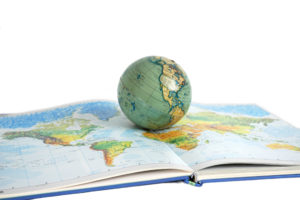
It has been decades since the majority of US schools taught geography as a stand-alone subject and the geography deficient is clear in current student populations.
The US Department of Education conducts assessments of student skills, the 2018 assessment of 8th grader’s geography skills (to date, the last year assessed) found that only about 25% of 8th graders performed at or above the proficient level in geography. Additionally, only “twenty percent of students reported taking an eighth-grade class or course mainly focused on geography”. This isn’t very different from the 1994 results which found that 27% of students that performed at or above the proficient level in geography.
This means that a significant number of your employees, team members, contractors, vendors, consultants and service professionals have no formal geography training and therefore may not be proficient in geography.
Geography Matters For Your Organization
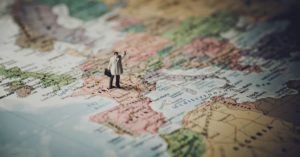
How would you effectively perform diligence on a person, a place, a product, a law or a new market if you don’t know or understand basic facts about the object of your diligence?
How do you assess the truthfulness or accuracy of a source or data if you don’t know anything about the place in which that source operates? Are you ready to expand or hire in a country where you know nothing about the local conditions? Will the risk assessment of a business transaction be accurate if you don’t know if the country is engaged in a major border conflict?
The answer to all of these questions is – no. If you don’t take geography into account you are missing a major point of diligence. Missing this information will in turn lead to a major error of judgement relating to your business, compliance and mission.
It isn’t always obvious but geography plays many roles in diligence, including as:
- A basic organizing principle for finding and retrieving information, such as in a database.
- The foundation of various risk assessments such as country risk and political risk.
- A business factor as relates to markets, customers and investment.
- A legal basis and a critical concern relating to laws, including global sanctions, conflict minerals, anti-money laundering, privacy, cyber security and anticorruption regulations.
- A key element in reference to Environmental, Social and Governance (ESG) matters.
- Relevant to important mission and value issues including climate change, ethics and integrity.
- It relates to avoiding criminals, cyber risk, fraud and other illegal acts.
- A diligence focus, for example if you are performing diligence on a country, region or specific real estate or if natural resources, climate.
Closing the Geography Gap for Your Organization
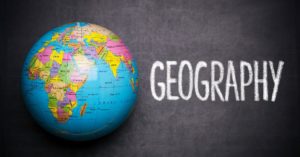
Schools don’t focus on geography so you have to fill the gap.
Your organization has to provide geography education and assistance. You can not assume that the people that work with you have geographic knowledge.
How do you fill the gap?
Start by recognizing that there is a gap, identifying the issues and then providing appropriate resources.
This is a list of seven ways that you can begin to formulate a geography knowledge strategy. The idea is to supply your employees, contractors, vendors and professionals with the information that they need to properly perform their diligence work.
Recognize that geography knowledge may be low, if necessary do an informal assessment. You can do this by using an online survey to poll people about their formal and informal geography education. There may be good news, you may find that you have people that are formally educated, or perhaps just well traveled or that have embraced geographic information as a hobby. They may be willing to act as geography “gurus”.
Sensitize employees to the importance of geography while conducting diligence.
Identify for employees the types of geographic factors relevant to your particular business.
Educate without shame, but as a key skill and do so broadly without assuming that geographic education only applies to certain groups or units. For example, have periodic presentations or mini courses designed to bring people up to speed on areas of the world that relevant to the business.
Encourage learning on an ongoing basis, perhaps a geography quiz of the week or fun facts about a particular country or location that is important to your business. There are a tremendous number of online resources including including quizzes, blogs, and podcasts.
Resources preferably electronically but even hard copies of atlases maps and directories are better than nothing.
Technology fixes are useful. Design technology and tools to fill in the gaps. This includes automating geographic knowledge by building it into diligence workflows. Simple steps could include look up lists, pop up definitions, and automated diligence questionnaires and checklists that include geographic questions relevant to the diligence project.
The Wealth of Online Geographic Resources

There is a wealth of online geography resources. Using the web to find, maintain and address geography information needs is a smart and inexpensive strategy.
Online geography resources are available by region, country and local areas. You can also find resources organized around topics such as sanctions, energy, legal infrastructure.
Finally, there are many online resources that are meant for teachers and students a well as traditional providers of geographic content such as libraries, encyclopedias, universities and societies. These are very helpful and often well organized by region or topic.
Specific types and sources that I have come across while doing research include:
- Atlases, maps, country assessment reports, news services, databases, images and topical podcasts.
- Statistics, reports, data, development plans and country reviews issued by supranational, regional, national and local government authorities.
- Private companies, consultancies, auditors and law firms that evaluate, analyze and sometimes score, country related issues, laws, economics, statistics, markets, leadership, press and business opportunities.
There are many more available, you just need to:
1. spend some time assessing what your organization needs to provide to its people,
2. finding the matching online resources and
3. sharing these sources and resources.


Subscribe for Diligence Updates
Get the latest updates, resources, offers, and more.
"*" indicates required fields
The Diligence File respects your privacy. Privacy Policy